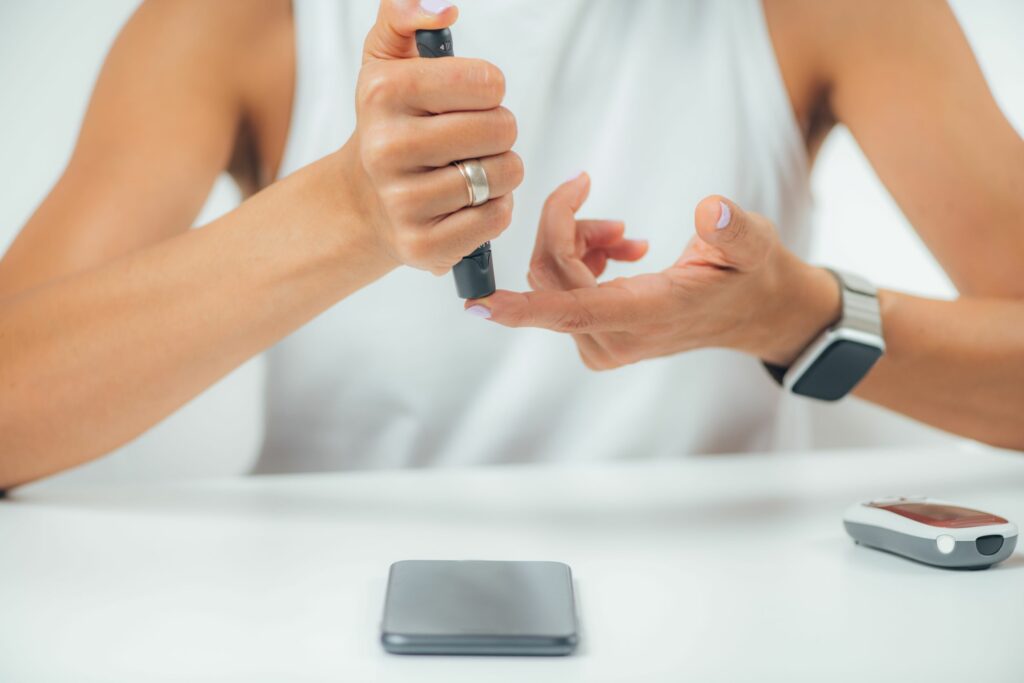For many women, pregnancy is regarded with both excitement and trepidation, as the possibility of childbirth carries its own particular health risks. Improving maternal health is a global concern, and one condition that no small number of women have to face is gestational diabetes mellitus (GDM). In the United States, GDM complicates around 2% to 10% of pregnancies every year, and is associated with health risks for both the mother and baby. Hence, managing GDM effectively is paramount in ensuring excellent pregnancy outcomes.
What is Gestational Diabetes?
The American Diabetes Association defines Gestational Diabetes Mellitus as “any degree of glucose intolerance that was first recognized during pregnancy”. While pregnancy itself induces insulin resistance to some degree in all women, not all women develop GDM, which indicates an increased need for insulin. GDM does not typically manifest in obvious symptoms, but can have important implications for both the mother and baby (increased risk of hypertension for the mother, premature labor and increased size of the baby causing difficult delivery), hence the need for routine screening.
Testing for GDM is usually carried out around the 24th to 28th week of pregnancy, unless there are risk factors for possible undiagnosed prediabetes/diabetes (e.g. obesity, first degree relative with diabetes, hypertension, sedentary lifestyle, PCOS), in which case testing is done at the first prenatal visit.
There are two strategies that are employed in testing for GDM:
- One-step 75-gram oral glucose tolerance test (OGTT) – the preferred approach internationally
- Two-step approach with a 50-gram screening test followed by a 100-gram OGTT
Different cutoff values are used depending on the testing strategy done, and higher values are indicative of undiagnosed diabetes rather than just GDM.
How is Gestational Diabetes managed?
Once the diagnosis of GDM is made, the American Diabetes Association recommends initiating treatment with lifestyle interventions, which include medical nutrition therapy, physical activity, and weight management. Glucose monitoring is also carried out, targeting blood glucose levels as follows:
- Fasting glucose of <95 mg/dL
- One-hour post-meal glucose of <140 mg/dL
- Two-hour post-meal glucose of <120 mg/dL
Medical nutrition therapy involves constructing an individualized nutrition plan for the pregnant patient. To date, there is no research that conclusively identifies the specific optimal caloric intake for women with GDM, but a minimum of 175 grams of carbohydrate, 71 grams of protein, and 28 grams of fiber, is recommended. For many women with GDM, nutrition therapy will be sufficient to achieve the target glucose levels, but for some women who do not, insulin is started as the first-line therapy for hyperglycemia. Regular follow-up with a nutritionist and physician during the course of the pregnancy is then essential in fine-tuning nutritional and pharmacological interventions.
How can remote monitoring be useful in managing Gestational Diabetes?
As glucose control and weight management are important targets in managing GDM, telemedicine and remote monitoring can have significant benefits for women with GDM. Several systematic reviews and meta-analyses have shown slightly lower average blood sugar levels and fewer unscheduled clinic visits for patients on these interventions compared to those on standard care, and even for women with GDM and COVID-19 favorable effects on glucose control were found.
With DrKumo’s remote patient monitoring technology system, various parameters and vital information can be recorded by women with GDM. Blood glucose levels, blood pressure trends, and weight/body composition can be tracked and monitored in real-time, which can assist women with GDM and their providers to make timely and appropriate adjustments to their health care regimen, increasing the likelihood of better pregnancy outcomes.
Takeaway
Blood glucose, blood pressure, and weight are targets for interventions in GDM and can be monitored closely with DrKumo’s remote monitoring technology, with current evidence pointing to lower glucose levels and less unscheduled clinic visits. Remote monitoring can thus play an important role in improving pregnancy outcomes for women who are diagnosed with gestational diabetes.
Related articles
3 Benefits of RPM Among Pregnant Patients
Ensuring Accurate Self-Monitoring of Blood Glucose at Home









